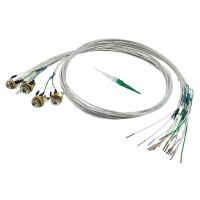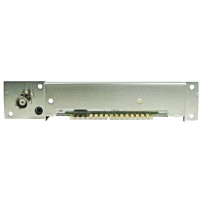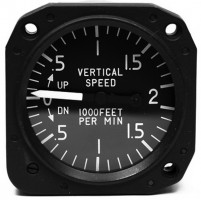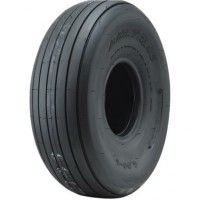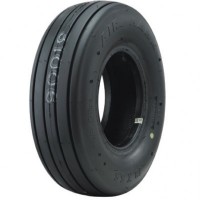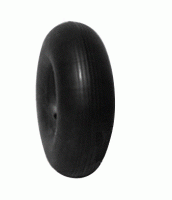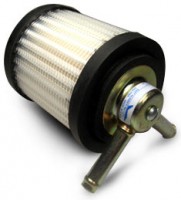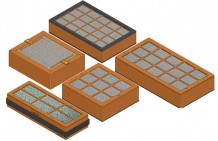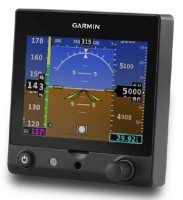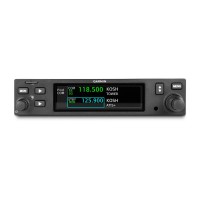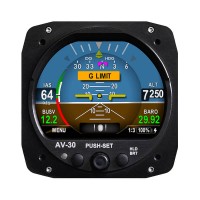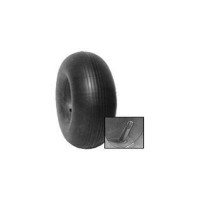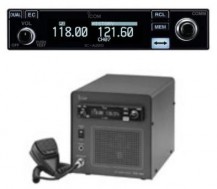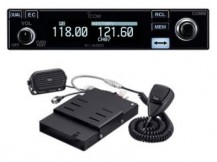Aircraft Spruce Canada
Brantford, ON Canada
Corona, CA | Peachtree City, GA
Chicago, IL | Wasilla, AK
Icom Ic A220 Kit With Custom Harness
MFR Model# ASA-00007-CU
Overview
|
Innovation Innovative features found in this next generation air band panel mount transceiver are why more pilots trust Icom as the one you add before flight. White OLED Display and White Key Back light The IC-A220 has a bright organic light emitting diode (OLED) display with a wide 170-degree viewing angle. White characters on a black background give the viewer clear, easy to read operating information. The white key back lighting and white OLED display match a modern plane’s instrument panel. In addition, the auto dimmer function adjusts the display for optimum brightness for either day or night. Easy channel selection It is fast and easy to select any of the memory channels in the IC-A220. The “flip-flop” arrow button switches between main and stand-by channels. The dual watch function allows you to monitor two channels simultaneously. Additionally, the improved auto stack memory stores the last 20 channels used and allows you to recall those channels easily. GPS memory function When connected to an external GPS receiver* equipped with an airport frequency database, the frequency data such as nearby airports can be transferred and made available. * Ask your dealer for available GPS receiver details. 12V/24V DC power source The built-in DC-DC converter accepts a 12/24V (11.5–27.5V) DC power source. The IC-A220 is easily installed in most airplanes or vehicles. Intercom functions The IC-A220 has a built-in voice activated intercom function allowing the pilot to talk with the copilot via the headset. The IC-A220 has an adjustable audio level and squelch control functions. Easy installation The IC-A220 has a D-Sub 25-pin industry standard connector for easy installation. The slim case can be installed into a tight panel space. |
Features
- 20 regular memory channels with a 6-character channel name
- 50 group memory channels (10 Ch x 5 groups) with a channel tag
- Automatic weather channel scanning and receive (USA version only)
- Dualwatch and priority watch functions
- One-touch access to 121.5 MHz emergency frequency
- Side tone function for monitoring your voice with headset
- ANL (Automatic Noise Limiter) function reduces pulse type noise
- Remote control capability
- PC programming capability
- Dial lock and panel lock
- Time-out timer
- D-Sub 25-pin industry standard connector for easy installation
- Slim 1.34 inch (34mm) height can be installed in a limited panel space
- Two types of menu mode: settings menu and configuration menu
In the Box
- A220 Transceiver - 1
- Mounting bracket - 1
- D-Sub 25 pin connector - 1
- Connector pins (M39029/63-368) - 25
- Screws Bind UNC (No. 4 × 3/8) - 2
- K-Lock Nut (No. 4) - 2
- BNC-LP - 1
- Washer (Icom washer V) - 1
- C-shaped ring - 1
- Antenna cable clip - 1
- Self crimping nut (No. 6) - 1
- Screw (No. 6 × 1/2) - 1
- Nut (No. 6) -1
- Crimp nuts (No. 6)- 6
- Speed nut UNC (No. 6) - 4
- Screws (No. 6 × 1/2) - 6
- COMM1 sticker
- COMM2 sticker
Specifications
| Frequency coverage: | |
| Tx/Rx | |
| 8.33kHz spacing | 118.000–136.992MHz |
| 25kHz spacing | 118.000–136.975MHz |
| Rx Wx channels | 161.650–163.275MHz* |
| (*USA version only.) | |
| Mode: | AM (6K00A3E, 5K60A3E) |
| Frequency spacing: | 8.33kHz/25kHz |
| Frequency stability: | ±5ppm |
| Operating Temperature: | -20°C to +55°C |
| Antenna impedeance: | 50Ω |
| No. of memory channels: | 20 regular memory, |
| 50 group memory, | |
| 10 GPS, | |
| 10 Weather*, | |
| 20 auto stack memory | |
| (* USA version only) | |
| Power supply requirement: | 13.8V/27.5V DC (Negative ground) |
| Dimensions (W×H×D): | 160×34×271 mm; 6.3×1.34×10.67 in |
| (projections not included) | |
| Weight (approx.): | 1.0 kg; 2.2 lb |
| Transmitter | |
| Output power: | 8 W typical (carrier power) |
| Spurious emission: | –60dBc |
| Modulation limiting: | 70% (Maximum 98%) |
| Microphone impedance: | 600Ω |
| Receiver | |
| Intermediate frequencies: | 38.85MHz/450kHz (1st/2nd) |
| Sensitivity: | |
| AM | Less than 2μV |
| FM | Less than 1.4μV |
| Selectivity: | |
| 25kHz spacing | ±3kHz/±22kHz (6dB/60dB) |
| 8.33kHz spacing | ±2.778kHz/±7.37kHz (6dB/60dB) |
| Spurious rejection: | More than 74dBμ |
| Audio output power: | |
| External SP | 5W with a 4Ω load |
| Headphone | 60mW with a 500Ω load |
Documents
Reviews
Heard back from the service department that the radio tested fine. Turned out that it’s the aircraft having issues.
Ive heard there have been problem with using the radio together with external intercom. That there would be needed to relays to get it work. What do you have to say about that?
Should have read the reviews! I purchased the radio for my new Just Aircraft Highlander. Installed it, but found constant static on all frequencies above 120 -123 Mhz. Nothing I could do to correct it. Numerous calls with Icom who always seemed to point to somebody else causing the static... not their radio. Sent the unit back to Washington on my dime.. they basically said they adjusted the squelch, but it was never an issue. I works now.. but the squelch had to be up in the high range (8 or 9) to be quite in the 123 mhz range. I did NOT like the support they provided. At least the radios squelch is working now. Think hard before purchasing.
Very sensitive to high temperature, if you switch off it in warm day you will not start it in 20-30 minutes, left without comunication several times
We had an ICOM 210. The circuit-board failed and could not be prepared. So we bought the 220, and had an avionics tech install it. Result: terrible. Big Squelchy Interference all the time. (And the volume knob did not work no matter how many times we unlocked it in the menu.) We went through both menus, made phone calls to ICOM, replaced some unshielded wiring. Nil fix. So we sent it back to ICOM in BC, and they detuned its sensitivity. They said they also found a fault in the circuit board. Returned, installed, and weve had one flight in it -- worked perfectly. Im giving it 2 stars instead on 1 because of the good service, although with covid this whole process took almost 2 years.
Found the 220 to be a great radio when I first installed it. Very easy to use. But once the temperatures here in Canada started getting colder in the fall mornings my 220 wouldn’t transmit until it warmed up by operation, normally about 15-20 min of wait time before I could Tx. Would RX just fine. Sent back for warranty work and will submit a feedback on that later
We removed a defunct ATC 200 and installed this 220 in a 1999 RV6a, hiring an avionics tech. Result: poor. This radio is much too sensitive. We are getting blasted for the first :20 mins of the flight with static and squelch. Weve been through the menus exhaustively -- nil fix. The flap motor sets it off. Sometimes the strobe light, or the fuel pump. Its always on a hair trigger. So were sending it back to the Rep in BC to have it de-sensitized. Shouldve bought an MGL.
5 months after my avionics shop installed this radio, it left my 172 without primary comm. while in a pattern above a busy airport. The icom warranty department has not been helpful. I have instructed my shop to install a Garmin( I hate spending good money after bad)
Q&A
Please note, Aircraft Spruce Canada's personnel are not certified aircraft mechanics and can only provide general support and ideas, which should not be relied upon or implemented in lieu of consulting an A&P or other qualified technician. Aircraft Spruce Canada assumes no responsibility or liability for any issue or problem which may arise from any repair, modification or other work done from this knowledge base. Any product eligibility information provided here is based on general application guides and we recommend always referring to your specific aircraft parts manual, the parts manufacturer or consulting with a qualified mechanic.
Yes, the MB-53 come with hand mic and external speaker in the Icom A220M (Part # 11-13690).
Per Icom: No, the A220 is not a plug and play replacement for the A200.
Per Icom: No, the unit is not TSO'd. For the TSO'd version, see part # 11-14551.
Per Icom: The transmit power is 8 Watts.
Per Icom: It does have a dual channel watch and will fit into the same opening as an SL 30.
Yes, the IC A220 comes with the tray and install instructions.
The Icom A220 is a mono transceiver, stereo audio is not available. There are 3 aux audio inputs which can be used for functions such as mono music.
Installer will have to replace:
tray
connector kit
the entire wire harness
circuit breaker
coax cable connector on the radio side
Yes, the tray will fit. The TSO is expected by the end of 2016.
No. The standard versions of the A220 will not be TSO approved. Please see part number A220T for the approved version (anticipated release August 1st, 2016).

 Aircraft Spruce Canada
Aircraft Spruce Canada

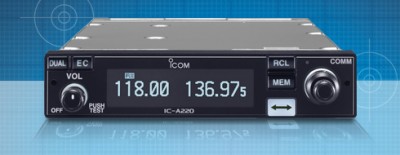
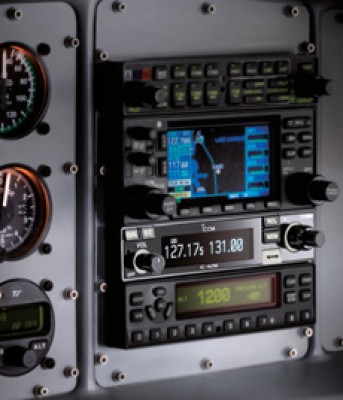










 Click here to visit Icom webpage
Click here to visit Icom webpage